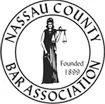Debt Settlement and Debt Consolidation vs. Chapter 7 and Chapter 13 Bankruptcy

When you’re overwhelmed by debt, finding a path to financial stability is critical. But what path should you take, and is one choice better than another? Many people consider debt settlement, debt consolidation, and bankruptcy as viable options. Each choice has its implications and benefits, and understanding these can help you make an informed decision. Here, we’ll explore debt settlement and debt consolidation, compare them with Chapter 7 and Chapter 13 bankruptcy, and explain why bankruptcy is almost always the better option. For personalized advice tailored to your unique situation, contact the Law Office of Taran M. Provost, PLLC, in Poughkeepsie and Goshen to speak with a skilled and knowledgeable New York bankruptcy lawyer.
Understanding Debt Settlement and Debt Consolidation
Debt Settlement: This process involves negotiating with creditors to allow you to pay a lump sum that is less than the total amount you owe. Debt settlement can lead to significant reductions in debt but comes with risks. It may negatively impact your credit score, and not all creditors are willing to negotiate. If you owe significant amounts to several creditors, you’ll have to negotiate with each one separately. Additionally, forgiven debt may be taxable as income.
Debt Consolidation: This method involves taking out a new loan to pay off multiple debts, thereby consolidating them into a single payment. The primary goal is to secure a lower interest rate or more manageable monthly payments. While debt consolidation can simplify financial management and potentially lower payment amounts, it does not reduce the total debt owed and might extend the debt period with additional costs as you pay the loan over a longer period of time.
Chapter 7 and Chapter 13 Bankruptcy: A Brief Overview
Chapter 7 Bankruptcy: Chapter 7 allows individuals to eliminate unsecured debts such as credit card debt, personal loans, and medical bills. It requires passing a means test, and those with too much income or assets may not qualify. In theory, Chapter 7 could also involve the liquidation of non-exempt assets to pay creditors before any debt is discharged. However, a skilled and experienced Chapter 7 bankruptcy lawyer can help you make the most of available exemptions so you don’t lose any property in the process.
Chapter 13 Bankruptcy: This reorganization bankruptcy is suitable for individuals with a regular income who can pay back part of their debts through a repayment plan. Chapter 13 protects your assets from sale (such as protecting your home from foreclosure even if you are in default) and allows you to reschedule secured debts and extend them over the life of the plan, which typically lasts three or five years. Remaining unsecured debts are adjusted and discharged, further extending the debt relief offered by Chapter 13.
Why Bankruptcy Is Almost Always the Better Option
When comparing these debt relief strategies, bankruptcy often emerges as the superior choice for several reasons:
-
Legal Protection: Both Chapter 7 and Chapter 13 bankruptcy provide an automatic stay, which immediately stops all creditor actions, including harassment, garnishments, and foreclosure activities. This legal protection is something debt settlement or consolidation does not offer.
-
Comprehensive Debt Relief: Bankruptcy can provide a fresh start by discharging debts or reorganizing them in a way that makes them manageable. In contrast, debt settlement only addresses the debts you can negotiate, and consolidation merely restructures existing debts without reducing the overall burden.
-
Credit Impact: While bankruptcy does impact your credit score, it is not necessarily any worse than debt settlement or consolidation. The effect of bankruptcy on your credit diminishes over time, and you can start taking proactive steps toward rebuilding your credit immediately. In contrast, the impact of settled debts can be unpredictable, as it depends on how creditors report the settled accounts.
-
Cost Effectiveness: Bankruptcy can be more cost-effective in the long run. The fees associated with debt settlement agencies and the interest rates on consolidation loans can add up. With bankruptcy, you deal with a one-time process that aims to either eliminate or reorganize your debts under court supervision. Legal fees are supervised and approved by the court to make sure they are reasonable.
-
Success Rates and Certainty: Bankruptcy offers a clear, legally binding resolution to debt challenges. Debt settlement can be risky as not all creditors are willing to negotiate, and there is no guarantee that the amount saved will be worth the impact on your credit. Debt consolidation offers relief in terms of payment management but does not solve the underlying issue of debt volume.
Contact Poughkeepsie Bankruptcy Attorney Taran Provost for Help With Debt Relief Options in the Hudson Valley
Choosing between debt settlement, debt consolidation, and bankruptcy involves understanding your financial situation and long-term goals. For many in the Hudson Valley facing severe debt issues, Chapter 7 or Chapter 13 bankruptcy filed through an experienced bankruptcy law firm, like the Law Office of Taran M. Provost, PLLC, can provide a more definite, protected, and effective path to regaining financial stability. To explore your options and see how bankruptcy might be the right choice for you, call 845-675-3243 to schedule a consultation with a knowledgeable bankruptcy attorney at our offices in Poughkeepsie or Goshen.



